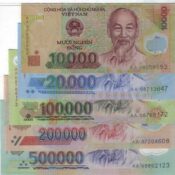Legendary battle: Bach Dang victory in 981 (under the leadership of King Le Dai Hanh).

Legendary battle: Bach Dang victory in 981 (under the leadership of King Le Dai Hanh).
It was the second great battle at Bach Dang Giang which took place during the Song-Viet war in 981, and the talented military leader who was honored with victory was King Le Dai Hanh. After this great war, Dai Tong agreed to step down and officially recognized Le Dai Hanh to rule Dai Co Viet.
- History situation.
Emperor Le Dai Hanh (full name Le Hoan) was born in 941 in Trung Lap village, Xuan Lap commune, Tho Xuan district, Thanh Hoa province. He lost his parents at a young age and had an unusual appearance, so the judge surnamed Le took him in and raised him. Growing up, he helped Dinh Lien – the eldest son of Dinh Tien Hoang. Being a wise and brave man, Le Hoan was assigned by Dinh Tien Hoang to manage thousands of soldiers. In 971, he was promoted to the highest military official position, Thap Dao, a commander of the Dinh Dynasty.
At the end of 979, Dinh Tien Hoang and crown prince Dinh Lien were assassinated, his 5-year-old second son Dinh Toan succeeded the throne, and the Dinh court weakened. Taking this opportunity, the Song Dynasty urgently gathered troops to prepare to invade Dai Co Viet.
Faced with the country’s dangerous fate, the court proclaimed Le Hoan king (King Le Dai Hanh), establishing the Early Le Dynasty in 980. He named the reign Thien Phuc, the national name was still Dai Co Viet, set up the capital at Hoa Lu, stabilized the internal situation, then divided the army to guard key places.
The Song Dynasty used Le Hoan as an excuse to declare himself Emperor and change the era name to send troops to annex our country. In the spring of 981, 40,000 Song troops led by Hau Nhan Bao followed two land routes to invade the country. Le Dai Hanh personally led the army, built Binh Lo citadel, and ordered soldiers to drive stakes to block the river based on the dangerous terrain of the Bach Dang River.
2. Stories.
Faced with this situation, Le Dai Hanh prepared for a decisive battle on the Bach Dang River. He chose a critical river section and arranged an ambush to wait. On April 28, 981, Le Dai Hanh sent an army to challenge the enemy on the Bach Dang River. Hau Nhan Bao was successful in chasing and falling into the ambush. At this time, Dai Co Viet warriors from all directions flocked to Bach Dang River to surround and fiercely fight the Song army. Hau Nhan Bao was killed. Hearing the news that the navy had lost the battle, the other troops hastily fled. The Song army was wiped out from our country. The great victory of Bach Dang in 981 caused the Song dynasty to recant and recognize him as king of Dai Co Viet.
King Le Dai Hanh directly led the troops into battle. During the 92 days and nights from December of the year Canh Thin to the end of spring in the year of the Snake, he directly commanded 6 major battles. The decisive battle on the Bach Dang River took place on April 28, 981. Le Dai Hanh recreated Ngo Quyen’s stake position, then cleverly used a subterfuge strategy, beheading the general Hau Nhan Bao, completely destroying the army. The Song Dynasty successfully ended the first resistance war against the Song Dynasty, maintaining the independence of Dai Co Viet.
3. Historic meaning.
This is a resistance war against foreign invaders by the young independent government. This victory not only demonstrated the determination of the Vietnamese army and people to fight foreign invaders, but also demonstrated a step forward in the country’s development and Dai Co Viet’s ability to protect national independence.
Don’t forget to contact Trang An Ecorest Resort & Spa – (+84 915 702 099) or visit us at www.tranganecorestresort.com if you need any support!
Trang An Ecorest Resort & Spa
Image source: Internet








